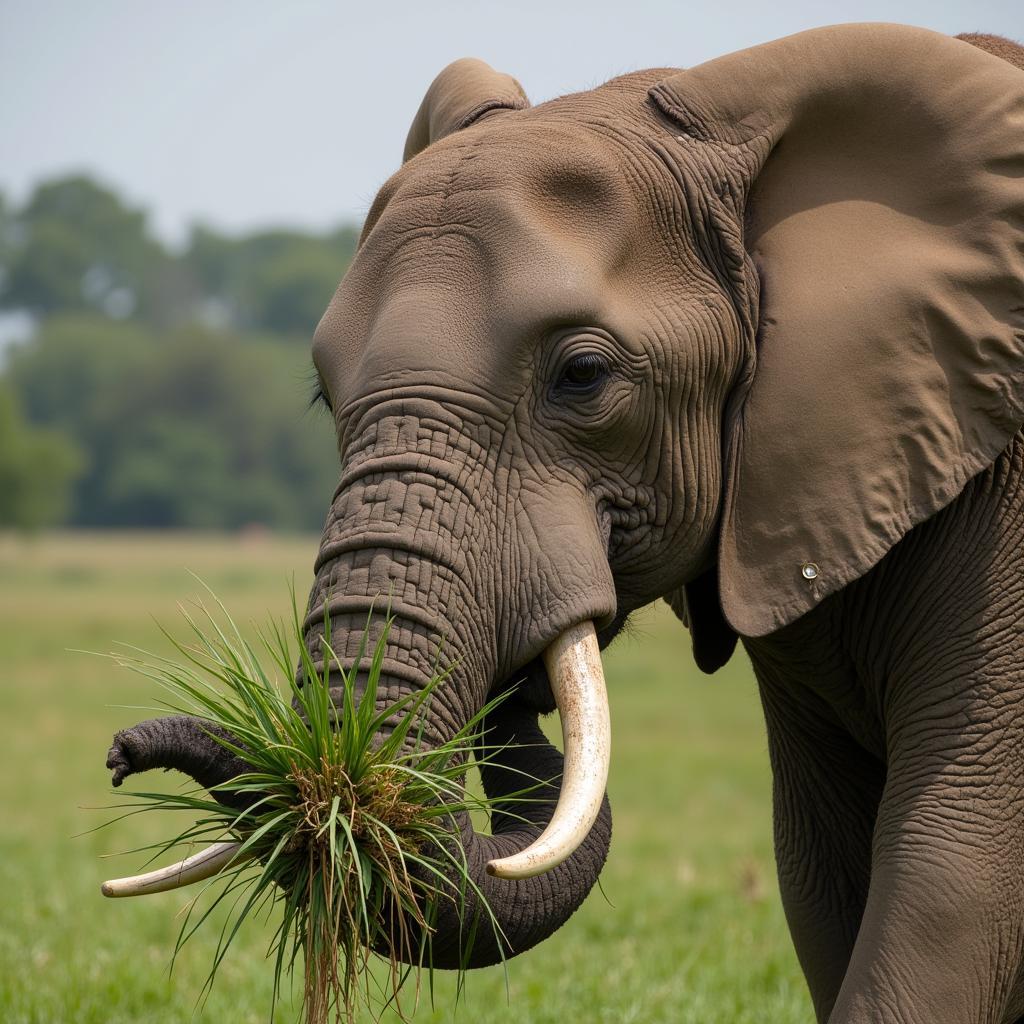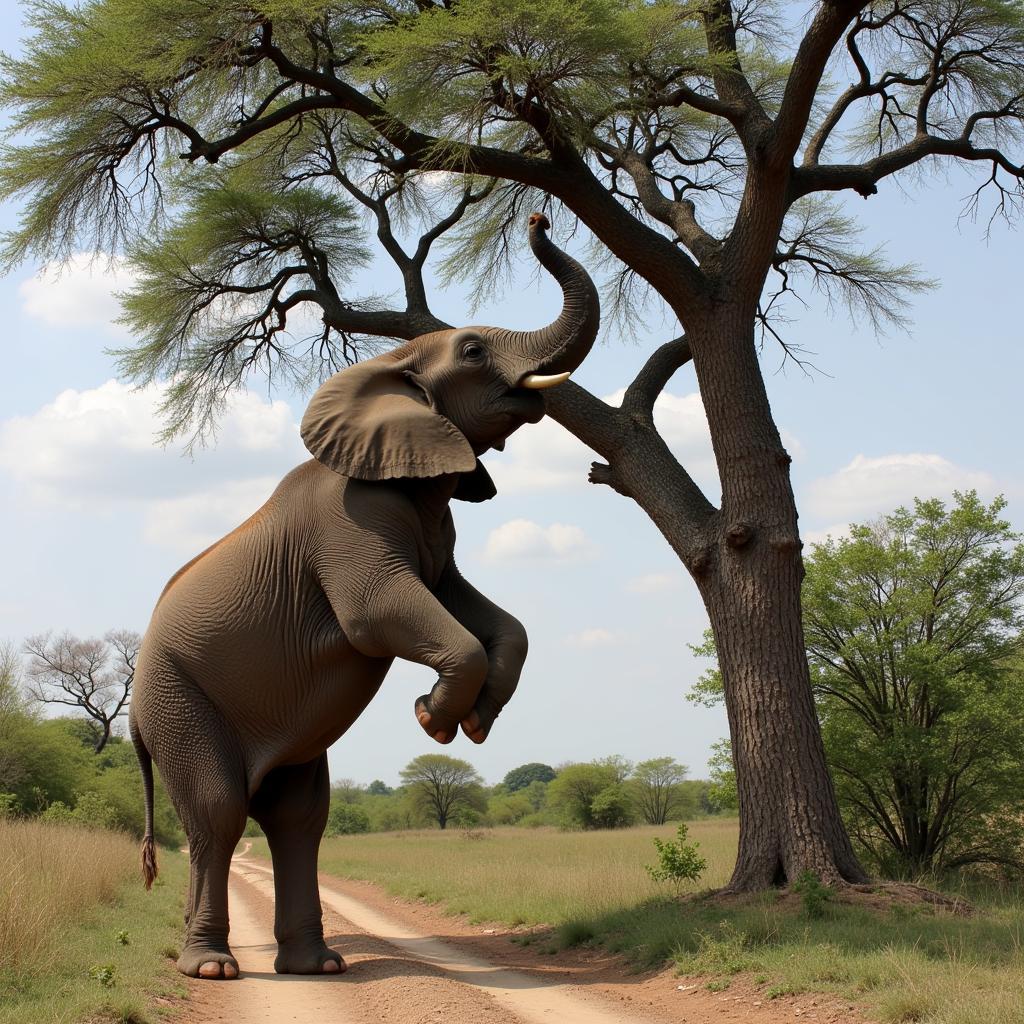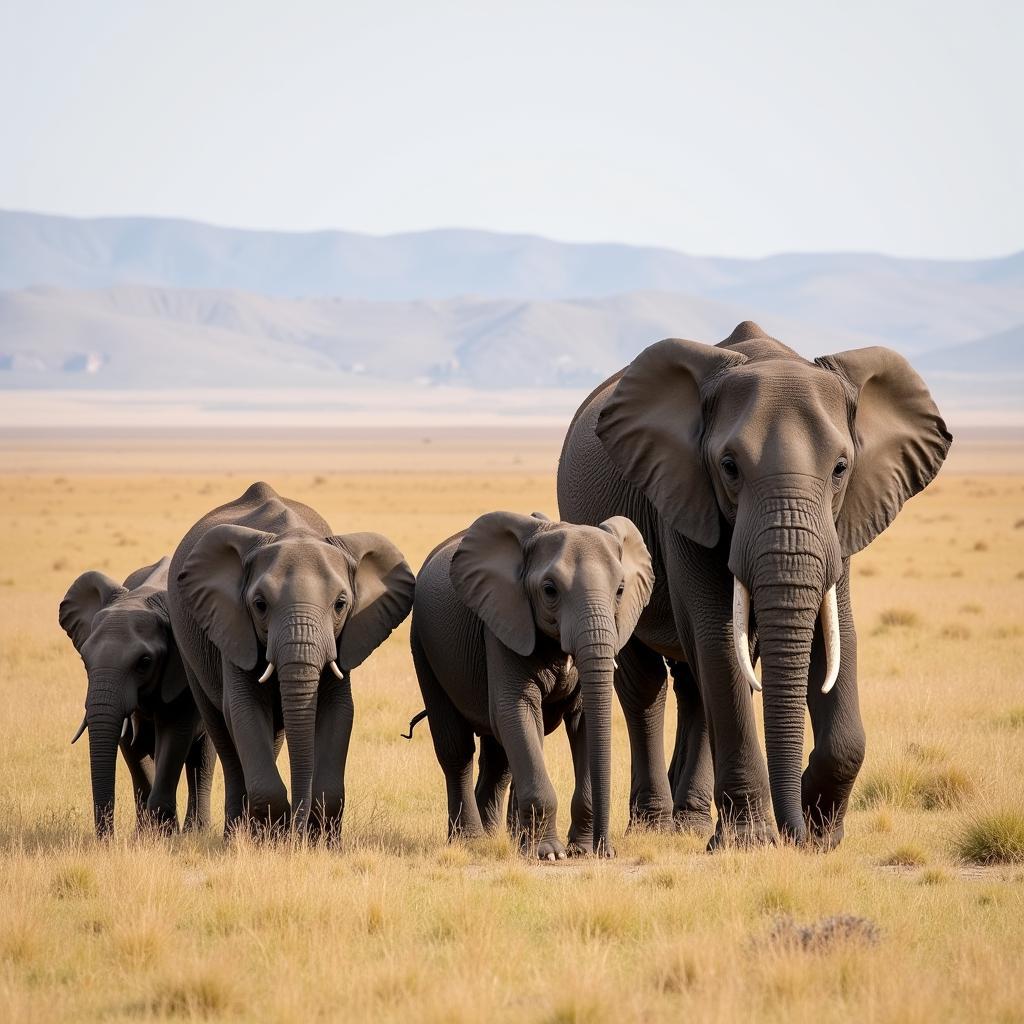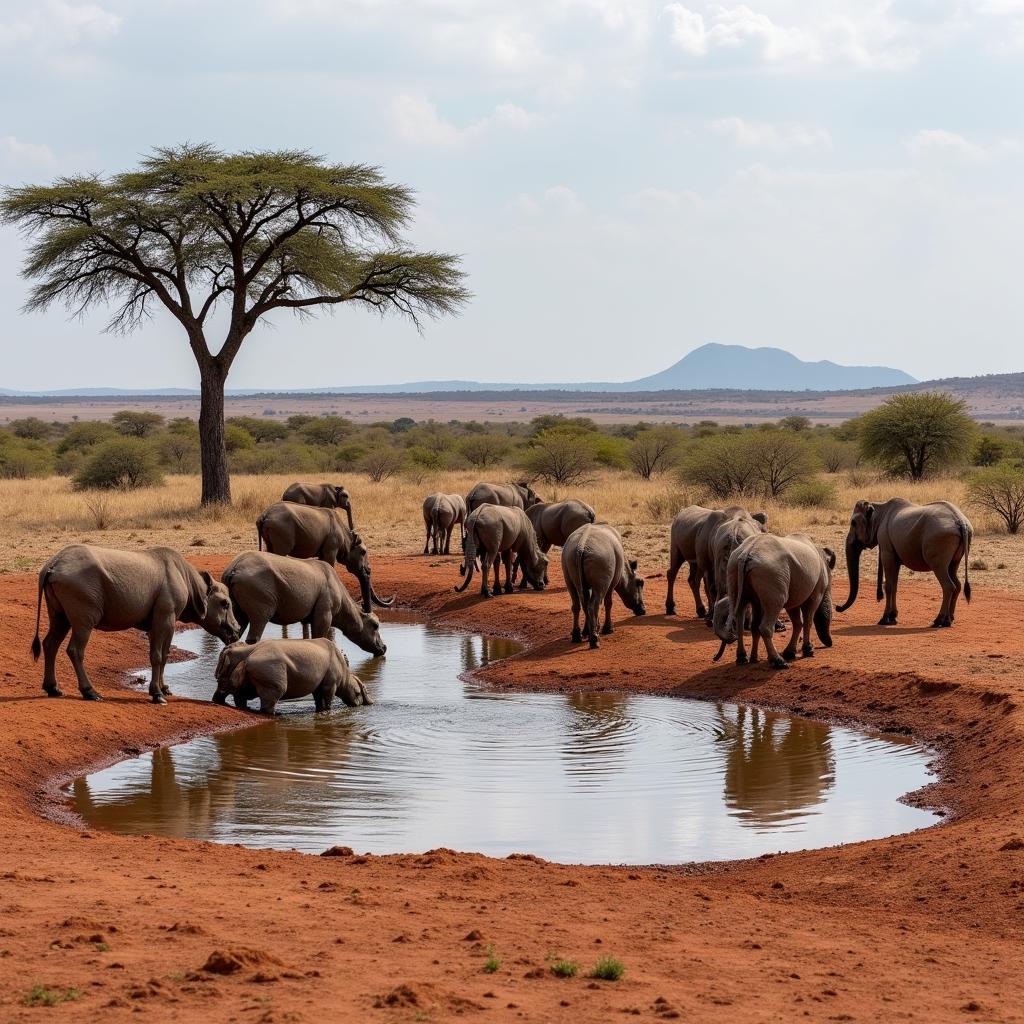How Much Does an African Elephant Eat Per Day?
The African elephant, a majestic giant roaming the savannas and forests, is renowned for its enormous size and insatiable appetite. These herbivorous behemoths consume a staggering amount of food daily to sustain their massive frames. But just how much does an African Elephant Eat Per Day?
 African Elephant Eating Grass
African Elephant Eating Grass
A Mammoth Appetite: Unveiling the Diet of an African Elephant
An adult African elephant can consume an average of 300 pounds of food per day. This equates to roughly 1% of its body weight in vegetation. To put it into perspective, imagine a human eating around 30 pounds of food daily – an unimaginable feat!
Their diet primarily consists of a diverse range of plant matter, including:
- Grasses: A staple food source, especially during the wet season.
- Leaves: A significant portion of their diet, obtained by stripping branches with their trunks.
- Fruits: A sought-after delicacy, providing essential sugars and moisture.
- Bark: A source of essential minerals, often stripped from trees using their powerful tusks.
- Roots and Bulbs: Dug up during drier periods when other food sources are scarce.
 African Elephant Stripping Bark
African Elephant Stripping Bark
Factors Influencing Food Intake: Size, Age, and Environment
While 300 pounds serves as a general guideline, the exact amount an African elephant eats per day can fluctuate based on several factors:
- Size: Larger elephants naturally require more sustenance than smaller individuals.
- Age: Growing calves and pregnant or lactating females have higher energy demands and consume more food.
- Seasonality: Food availability varies throughout the year, impacting daily intake. Elephants tend to eat more during the wet season when vegetation is abundant.
- Habitat: Elephants in lush environments with diverse plant life may consume a wider variety of food compared to those in drier regions.
The Importance of a Hearty Appetite: Ecological Impact and Conservation
An African elephant’s enormous appetite plays a crucial role in shaping its environment. As they graze and browse, they create clearings in vegetation, fostering habitat diversity and influencing plant distribution.
 African Elephant Family
African Elephant Family
Their dung, rich in nutrients and seeds, acts as a natural fertilizer, dispersing plant life across vast distances. However, habitat loss and fragmentation due to human activities threaten their food sources, leading to conflicts with humans and impacting their survival.
Conservation Efforts: Ensuring a Future for the Gentle Giants
Protecting the African elephant and its habitat is essential for maintaining the ecological balance of the savannas and forests they inhabit. Supporting conservation organizations, promoting responsible tourism, and raising awareness about the importance of these magnificent creatures are crucial steps in ensuring their survival for generations to come.
FAQs: Unraveling More About African Elephant Eating Habits
1. How much water does an African elephant drink per day?
An African elephant can drink up to 50 gallons of water per day, especially during the dry season.
2. Do African elephants eat meat?
No, African elephants are strictly herbivores, meaning their diet consists solely of plant matter.
3. How long do African elephants spend eating each day?
African elephants can spend up to 16 hours a day foraging and feeding to satisfy their enormous appetites.
4. How do African elephants’ tusks help them eat?
Elephants use their tusks to strip bark from trees, dig up roots and bulbs, and break open tough seed pods, accessing otherwise inaccessible food sources.
5. What are some of the threats to African elephants’ food sources?
Habitat loss due to deforestation, agriculture, and human settlement poses a significant threat to African elephants’ food sources, leading to competition for resources and human-wildlife conflict.
For more fascinating insights into the lives of African elephants, explore these related articles:
Need help?
Contact us at:
Phone Number: +255768904061
Email: [email protected]
Address: Mbarali DC Mawindi, Kangaga, Tanzania
We are available 24/7.


